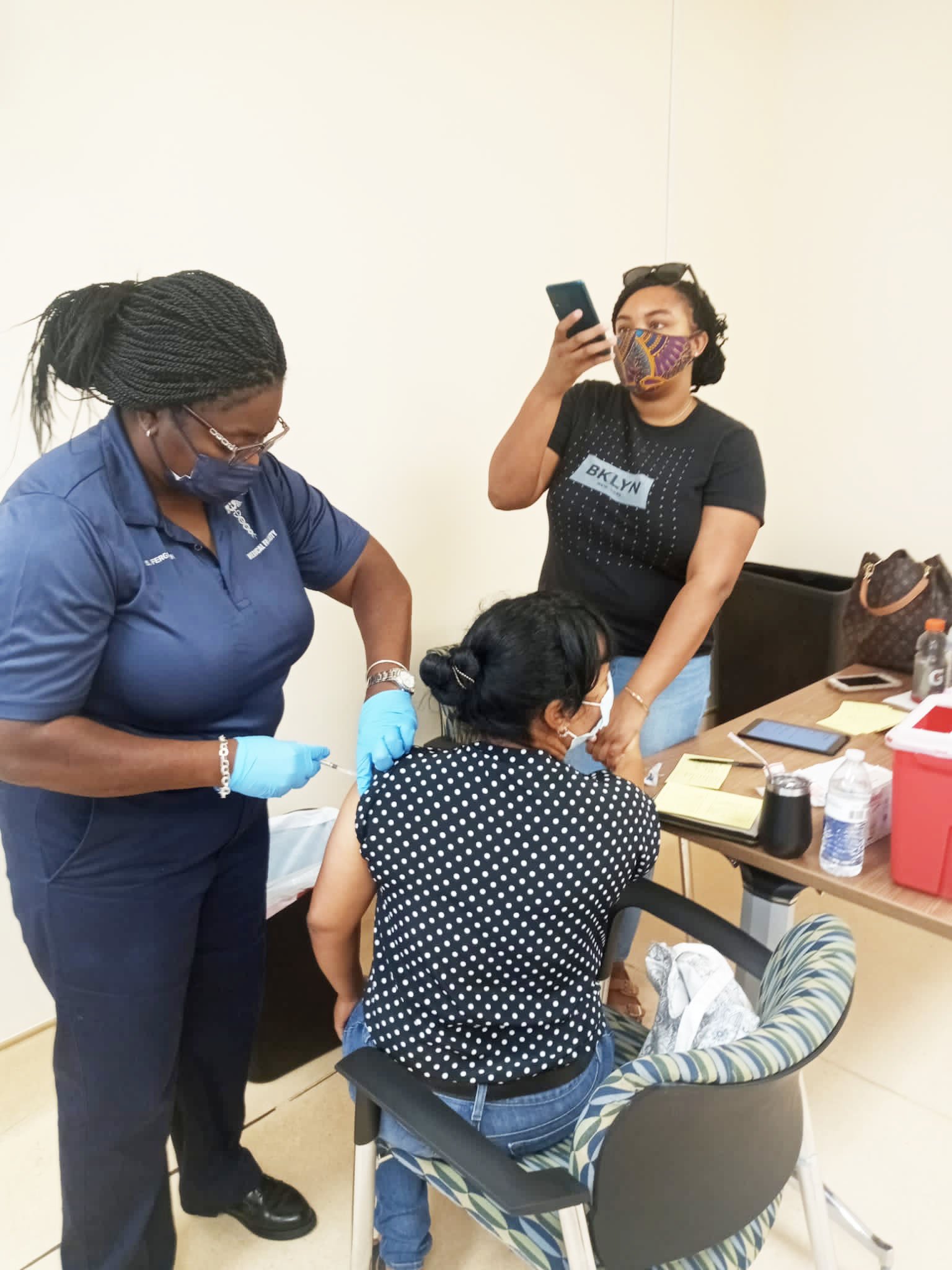10 of the 13 countries and territories in the Americas yet to reach 40% coverage are in the Caribbean
PAHO says tide can be turned with targeted interventions
WASHINGTON, DC — Low vaccination coverage in many countries of the Caribbean must be urgently addressed to stop the spread of COVID-19 and protect the most vulnerable, warned PAHO Director Carissa F Etienne yesterday.
She said healthcare workers and the elderly remain particularly at risk.
Out of the 13 countries and territories in the Americas that have not yet reached the World Health Organization’s (WHO) 2021 goal of 40 percent vaccination coverage, 10 are in the Caribbean, the director added.

Vaccine hesitancy, a lack of vaccination centers in remote areas, insufficient staff numbers and limited cold-chain infrastructure remain huge barriers to vaccination in many islands, but we now have the tools “to turn the tide on vaccinations in the Caribbean.”
With 700 million people now vaccinated in Latin America and the Caribbean, there is “real-word data to show that vaccines are safe and effective against COVID-19”, Etienne said at a weekly press briefing.
But interventions must now be tailored to the needs of those who remain vulnerable in each country.
In some countries, this means ensuring healthcare workers are provided with the information they need to get vaccinated, including on potential side effects and how long the benefits of the vaccine last.
“These are legitimate questions that must be acknowledged and addressed so that we can better protect our healthcare workers and everyone else,” Etienne said.
In other countries, PAHO is working with governments to ensure vaccination centers are closer to the people who need them the most, and that hours of operation are convenient for those that work.
Dialogue, trust and outreach are the tools we must rely on to get more vaccines into arms and ultimately save lives.
– PAHO Director Dr Carissa F Etienne

The director also urged countries to work with trusted voices and community leaders to create spaces for dialogue to address concerns around vaccination.
A recent survey by PAHO and UNICEF, supported by USAID, showed that 51 percent of vaccine-hesitant people in the Eastern Caribbean were open to changing their minds after seeing more scientific and medical evidence to support vaccination.
“Dialogue, trust and outreach are the tools we must rely on to get more vaccines into arms and ultimately save lives,” the director said.
Etienne also made a special appeal. “As a doctor from the Caribbean who has dedicated her life to public health, the best decision you can make for your health right now is to get a vaccine against COVID,” she said.
“The pandemic is not over, and a new variant can emerge at any point.
“We have the power, as a community, to overcome these barriers and reduce the toll of this virus on our people.”
Turning to the COVID-19 situation in the region, new cases declined by 28 percent from the previous week, to 2.2 million.
Deaths also fell for the first time since the beginning of the omicron wave to 29,000 — a nine percent drop.
In the Caribbean, new infections fell by 44 percent, yet eight countries and territories reported an increase in deaths.






